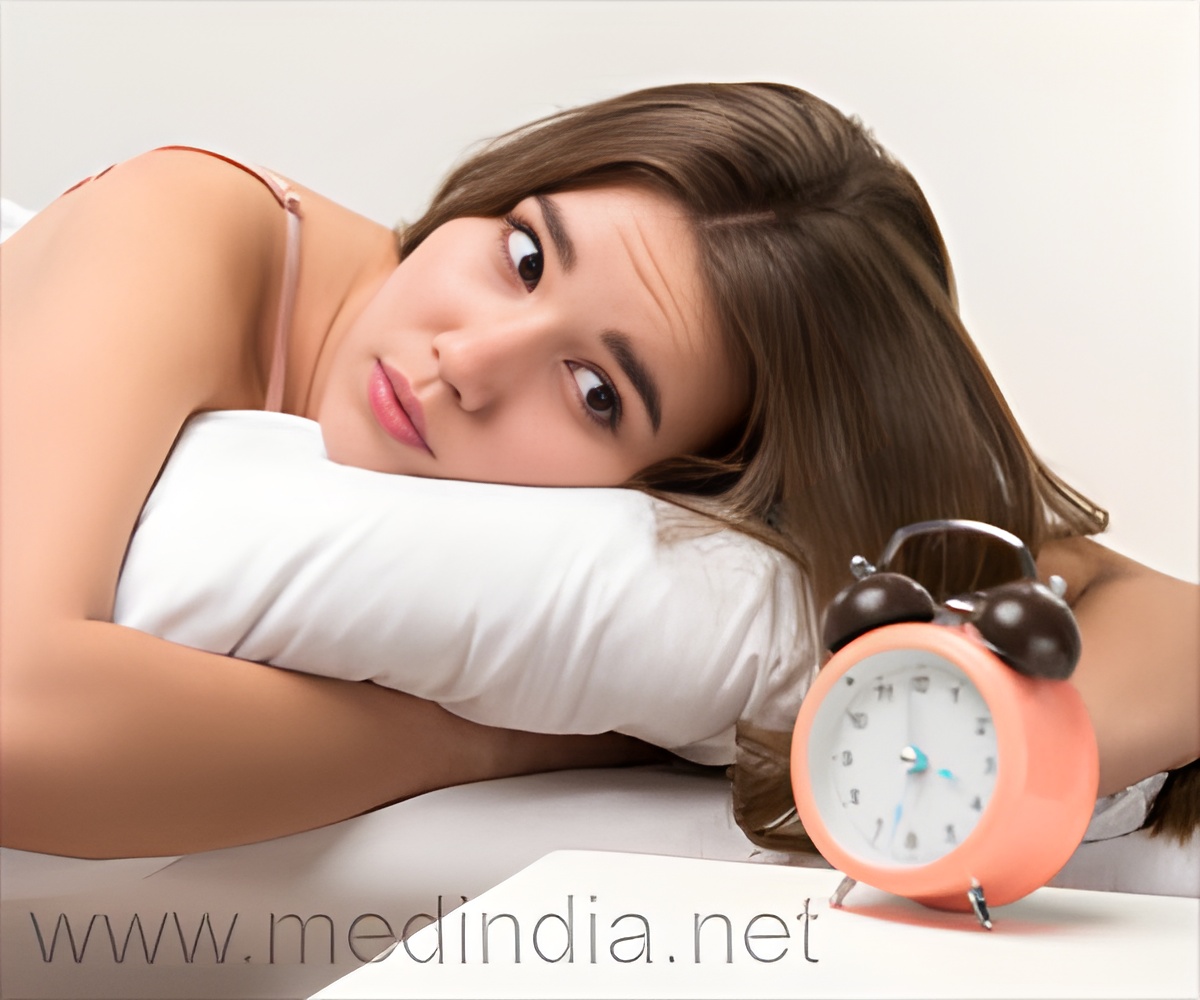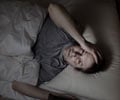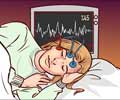Study finds that the struggle with sleep deprivation among adolescent girls is attributed to delayed melatonin production.

Sleepy and popular? The association between popularity, sleep duration, and insomnia in adolescents
Go to source). It is also during the teenage years when increasing school demands, activities, more independence from parents, and relationships with peers begin to compete with sleep.
‘Did You Know?
Women are twice as likely as men to experience insomnia.
#insomnia #sleep #teenagers
’





The role of social context, however, is often overlooked when studying adolescents’ sleep. Now, researchers in Sweden and Australia wanted to find out how popularity among peers affected the sleeping habits of teenagers aged 14 to 18. “Here we show that popular teenagers reported shorter sleep duration. In particular, popular girls – but not boys – reported more insomnia symptoms,” said Dr Serena Bauducco, a sleep researcher at Örebro University and first author of the Frontiers in Sleep article.
“Most interestingly, popularity also seems to negatively impact sleep before and after the advent of smartphones.”
Lights, Likes, Lack of Sleep!
In a sample of more than 1,300 Swedish teenagers, almost half of them female, the researchers examined if popularity coincided with shorter sleep duration.They asked teenagers to nominate up to three friends, and those receiving the most nominations were defined as more popular.
Advertisement
When the researchers looked at boys and girls separately, they also found a correlation between popularity and insomnia symptoms: More popular girls experienced more insomnia symptoms, such as difficulty falling staying asleep, or waking up too early. Popular boys did not experience these symptoms to the same extent.
Advertisement
“Girls express more care and concern with their friends and engage in helping behaviors more than boys. This might mean they carry these concerns when it’s time to fall asleep,” Bauducco explained.
Teenage Popularity Paradox Explored
“We also see that popularity has been associated with worse sleep both before and after the development of handheld communication technology,” said Bauducco.This suggests that it may not be smartphones that cause popular teenagers to sleep less; instead, other mechanisms could be at play.
The researchers speculate that more friends may mean more time dedicated to them which could result in less time left for sleeping. More emotional investment, too, could lead to sleeping difficulties.
Both explanations would apply to times before and after smartphones became common. This, however, needs to be investigated in detail, the researchers said.
“Teenagers are arguably the most sleep-deprived population throughout the lifespan,” said Bauducco. “Previous studies show that 30 minutes of extra sleep can lead to improved mental health and better school performance.”
With schools starting early, many teenagers try to catch up on sleep on weekends – a strategy that can backfire. “Suppose a teen sleeps in on Sunday until 1 pm. Falling asleep that night to be ready for school the next day will be a struggle because they won’t feel tired,” Bauducco pointed out. “Delaying wake-times too much can contribute to maintaining the problem of sleep debt racked up during the week.”
The researchers believe that discussing social norms about sleep and expectations of peers around bedtime are missing components of existing sleep interventions for adolescents.
Additionally, further research is needed to examine the mutual relationship between social connectedness and sleep and to shine a light on the discovered sex differences.
Reference:
- Sleepy and popular? The association between popularity, sleep duration, and insomnia in adolescents - (https://www.frontiersin.org/articles/10.3389/frsle.2024.1346806/full)
Source-Eurekalert















